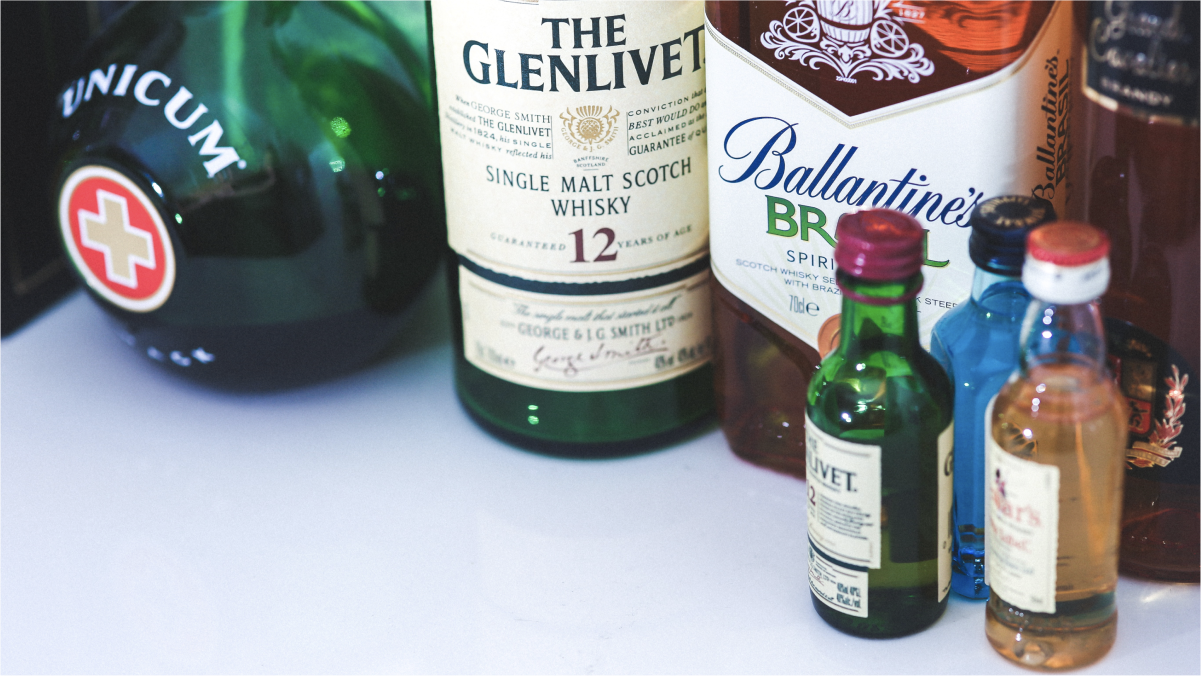“Can I have a glass of wine with it?”
If you’ve asked your pharmacist this question, you’re not alone. In fact, we field this question on a weekly basis. And during the holiday season when Americans double their alcohol consumption, we field it on a daily basis.
While some prescription medications have a clear answer, some do not.

So, we put together this handy guide that outlines a few of the main classes of drugs and how they interact with alcohol:
1. Painkillers (opioids): No.
If you’re using opioids or painkillers such as hydrocodone or oxycodone, you must avoid alcohol.
The abuse of opioids and painkillers is on the rise and studies show people who abuse alcohol tend to abuse opioids, and vice-versa. But even if you are taking the amount prescribed, issues can result such as drowsiness, dizziness, slurred speech, respiratory depression, and loss of consciousness.
2. Painkillers (Tylenol): No.
It is widely considered unsafe to take Tylenol and alcohol at the same time.
Although consuming a small amount of alcohol while taking Tylenol may be fine, pharmacists do not recommend mixing. Regular alcohol use combined with repeated doses of Tylenol can cause a range of side effects from mild to severe, including the possibility of fatal liver damage.
3. Sleeping pills (sedatives): No.
Both alcohol and sedatives are powerful depressants. Combining the two can intensify sedative effects and also worsen symptoms of side effects such as drowsiness, dizziness, loss of memory, nausea/vomiting, and impaired coordination. Many studies show that mixing the two can increase your chances of injuries and accidents.
4. Antibiotics: Better to avoid, with exceptions where you must avoid.
Each antibiotic comes with its own instructions, but alcohol consumption can impair your natural immune response, disrupt your sleep cycle, and cause dehydration. This can delay or reduce the effectiveness of your antibiotic treatment. Pharmacists generally recommend patients avoid drinking, but if you have any alcohol, make sure to separate drinking from your medication time by at least 4 hours.
In the case of the antibiotic metronidazole (Flagyl), alcohol must be avoided. If taken with alcohol, patients will suffer from flushing, nausea, and severe vomiting.
5. Anti-anxiety meds (antidepressants/anxiolytics): Better to avoid.
Alcohol and anxiolytics are depressants. Regular alcohol consumption can reduce the effectiveness of antidepressants and worsen your symptoms of depression. Alcohol can also exacerbate the side effects of antidepressants and anxiolytics such as dizziness, drowsiness, and confusion. For these reasons, it is best to avoid alcohol while taking antidepressants.
6. Painkiller (ibuprofen): Moderate drinking approved.
If you take ibuprofen (or anything in the same category such as Advil or Motrin), it is okay to drink in moderation. However, if you have a sensitive stomach you may want to avoid it as even a small amount of alcohol can cause an upset stomach. Of course, we do not recommend binge-drinking while taking ibuprofen (or ever).
Also, if you take ibuprofen every day, you may experience an increased interaction with alcohol. If so, talk to your pharmacist before drinking.
7. High blood pressure meds (hypertension): Moderate drinking approved.
You don’t have to give up drinking because you have high blood pressure, but it can cause dehydration, electrolyte imbalance, and your blood pressure to fluctuate. As long as you exercise moderation, consuming no more than 2 drinks a day should be okay. Since there are many different classes of blood pressure medications, make sure to get detailed information from a pharmacist before drinking.
8. High cholesterol meds (hypercholesterolemia): Moderate drinking approved.
Again, you don’t have to give up drinking because you are on cholesterol-lowering medications. Sensible drinking is key. Drinking alcohol in excess, however, can cause weight gain, elevate your triglyceride level, and lead to liver damage especially if you are on a medication class called “statins.”
You can also always call your friendly neighborhood pharmacist (like us!) and we can provide you with more detailed information about the potential downsides of mixing your favorite adult beverage with your medication.
Wishing you a fun, and safe, holiday season!
